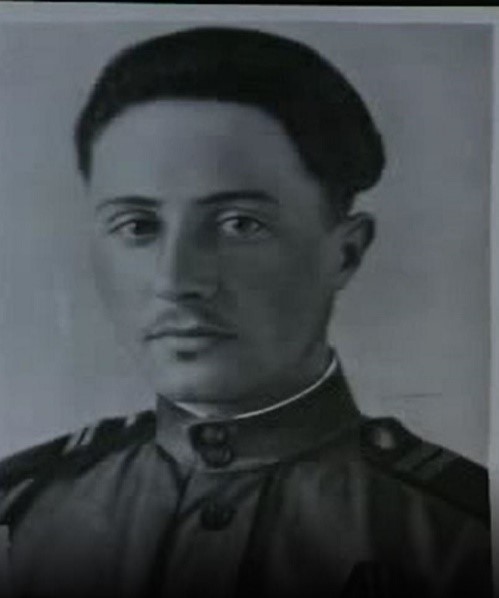Yefim Kaplan was born in Korosten, west of Kiev, in 1923, and grew up in Kiev. His father Volf was a clerical worker at the Ukrainian State Leather Trust. Following the outbreak of the Soviet-German War on June 22, 1941, the father was evacuated along with the administration of the trust, while the family was left behind in Kiev. In July 1941, Yefim was drafted into the "Labor Front" and sent to do agricultural work in eastern Ukraine. After three weeks of working as harvesters, the young boys were evacuated to western Siberia. Yefim found himself at a military technical school. After finishing it, he was attached to the 647th Artillery Regiment, as head of the regimental radio station, in the rank of sergeant. In May 1942, his regiment was deployed on the Don Front, where the Red Army was slowly retreating in the direction of Stalingrad (present-day Volgograd, in the Lower Volga area). Here, Yefim Kaplan proved himself a capable artilleryman and machine gunner. During the retreat of August 1942, the remnants of Kaplan's decimated unit were taken prisoner by the Germans.
In captivity, Yefim Kaplan was registered as Kaplenko, an ethnic Ukrainian. He survived the Nazi "examinations" due to the fact that he had not been properly circumcised after his birth; his comrades did not denounce him to the Germans as a Jew. In December 1943, during a transfer between camps, Kaplan and some fellow POWs managed to escape from the train in Volhynia, northwestern Ukraine. After several weeks of wandering, they were taken in by Soviet partisans.
In March 1944, the area was liberated by the Red Army, and Kaplan, being an experienced military technician, requested to enlist in the military. He was assigned to a reserve regiment and sent to western Russia for retraining. Here, Kaplan, as a former POW, had to undergo a long screening. He kept petitioning his superiors to have him transferred to the frontline. Only in late 1944 was he attached to the 8th Guards Rifle Division, which was fighting in Latvia at the time. Remarkably, in March 1945, during the operation to liquidate the Courland Pocket, the division found itself encircled by German forces. However, it managed to break out, and Kaplan thus avoided being taken prisoner for the second time. He met V-E Day in Auce, southern Latvia.
In the course of the war, Kaplan was awarded only the medal "For the victory over Germany in the Great Patriotic War." His father survived the war, while his mother was murdered in Babii Yar in Kiev on September 29-30, 1941.
After the war, Yefim Kaplan – who, by his own admission, hated the army and military service 1– made great efforts to avoid being sent to a military school or academy, so as not to become a career officer. He was discharged from the army in March 1947. From the 1950s on, he lived in Kiev.
- 1. YVA O.93/43730







